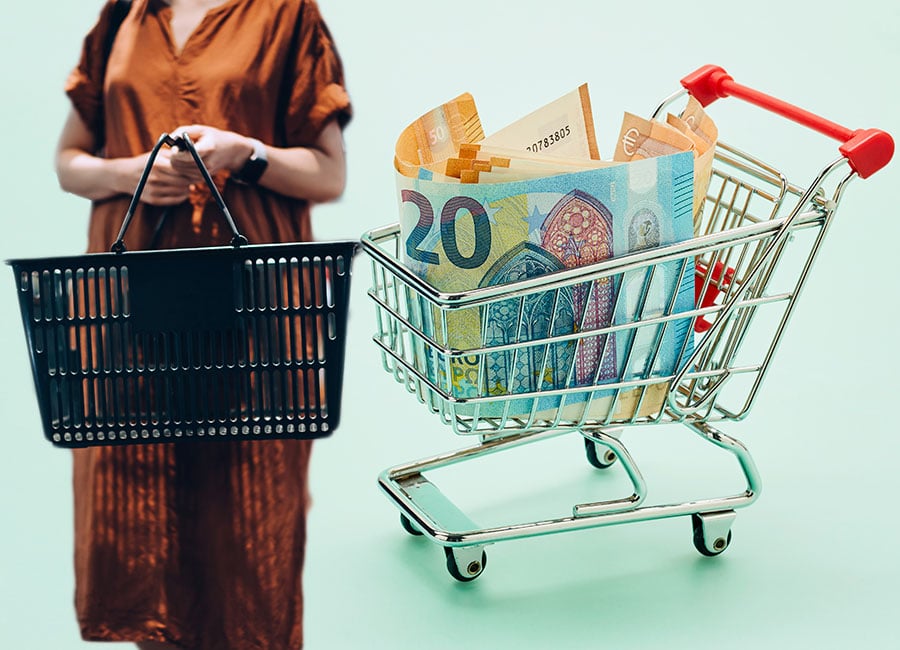Grocery price inflation reached 2.4% in February, marking the seventh consecutive month of rising prices and the highest level of inflation seen since June 2020, according to the latest Kantar grocery market share data.
Emer Healy, senior retail analyst at Kantar, said inflation across the economy, which hit 5% in January, was "being felt at the grocery tills", with shoppers opting for own-brand products over branded products "in an attempt to drive down the cost of their weekly shop."
Budget retailers Lidl (12.2%) and Aldi (11.7%) both gained market share in the 12 weeks to 20 February, with Lidl's "inflation buster" promotion helping to attract an additional €4.1m in sales for the period.
"Supermarkets have been quick to respond to growing concerns over the cost of living through targeted ad campaigns and voucher schemes," Healy added. "These kinds of tactics will only become more important as grocers battle for the biggest slice of consumer spend in a challenging environment."
Overall take-home grocery sales declined 4.5% year-on-year for the 12-week survey period, but sales remain elevated compared to the immediate pre-pandemic, up 11.1% from two years ago, but online sales have dropped 15% or €9.4m in the past four weeks as shoppers returned to stores.
Online sales as a proportion of the grocery market fell from 6.2% to 5.7%, with the growth in online grocery retail seen during the pandemic having "reached a natural ceiling" and now beginning to stabilise as restrictions ease, according to Healy.

"People are finding their feet in their new routines, with many juggling commuting and socialising again after months at home. Shoppers spent an additional €4.3m on chilled convenience items like pizzas and ready meals over the latest month, as families turned to quick and easy meal options to feed the kids while schools were out over mid-term week," Healy said.
"With convenient options on the rise, home baking is clearly lower on shopper’s agendas. Sales of flour, eggs and chocolate spreads were all down 27.6%, 20.6% and 35% respectively in the last four weeks."
All of the major retailers saw take-home grocery sales fall in the 12 weeks to 20 February 2022 compared with last year, though they remained in growth compared with pre-pandemic.
Dunnes has retained its position as Ireland’s largest grocer this month, holding 23% of the market. SuperValu claimed a market share of 22%, while Tesco followed closely behind with 21.9%.
Sales at Dunnes were down just 0.9% year-on-year, compared to -5.5% at SuperValu, -4% at Tesco, -3.2% at Lidl and -1.8% at Aldi. Compared to two years ago, sales were up 8.7% at Dunnes, 14.2% at SuperValu, 13.3% at Tesco, 17.9% at Lidl and 11.4% at Aldi.
(Pic: Getty Images/Getty Images)









